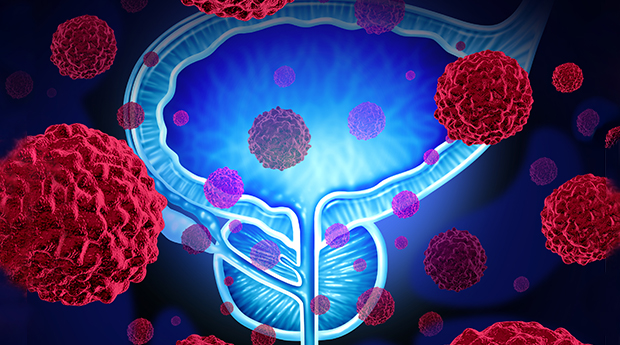
Multiple-treatment approach improves survival rates in aggressive prostate cancer
UCLA (The University of California, Los Angeles) researchers have discovered that a combination of high doses of radiotherapy and hormonal therapy provides the best chance of decreasing the mortality rate of men with aggressive prostate cancer. The findings also suggest that such a multimodal treatment approach has the best chance of preventing metastatic disease and improving overall long-term survival.
The study, led by UCLA researcher Dr. Amar Kishan, is the first of its kind to compare treatment outcomes between radiotherapy treatments that are higher than the standard dose and traditional treatments, such as radiation and prostatectomy (the surgical removal of all or part of the prostate gland), in men with cancers that are Gleason score 9 or 10 (the highest score possible). The Gleason grading system is used to help evaluate the prognosis of men with prostate cancer; the higher the Gleason score, the more likely it is that the cancer will grow and spread quickly.
In this study, the patients with the best outcomes were those who received an aggressive therapy that included so-called ‘extremely dose-escalated radiotherapy’ along with hormonal therapy.”
The study builds upon previous research led by Kishan and colleagues, which provided the first evidence that surgery and standard radiation-based treatments offer equivalent treatment outcomes for men with prostate cancer and suggested a potential benefit over both with radiation treatments in higher than the standard dose. The ideal therapeutic approach for these patients has long been controversial, in part because technologies and radiation-based treatments have evolved significantly over time.
The effectiveness of these approaches is of even greater importance for the most aggressive forms of prostate cancer, which are more likely to lead to metastatic disease and eventually death.
Several studies have shown that increasing the dose of radiotherapy beyond standard doses (known as extreme dose-escalation), in combination with hormonal therapy, has improved short-term treatment outcomes, but no previous studies have shown a difference in mortality rates or long-term survival in any group of patients with prostate cancer.
 English
English Arabic
Arabic


